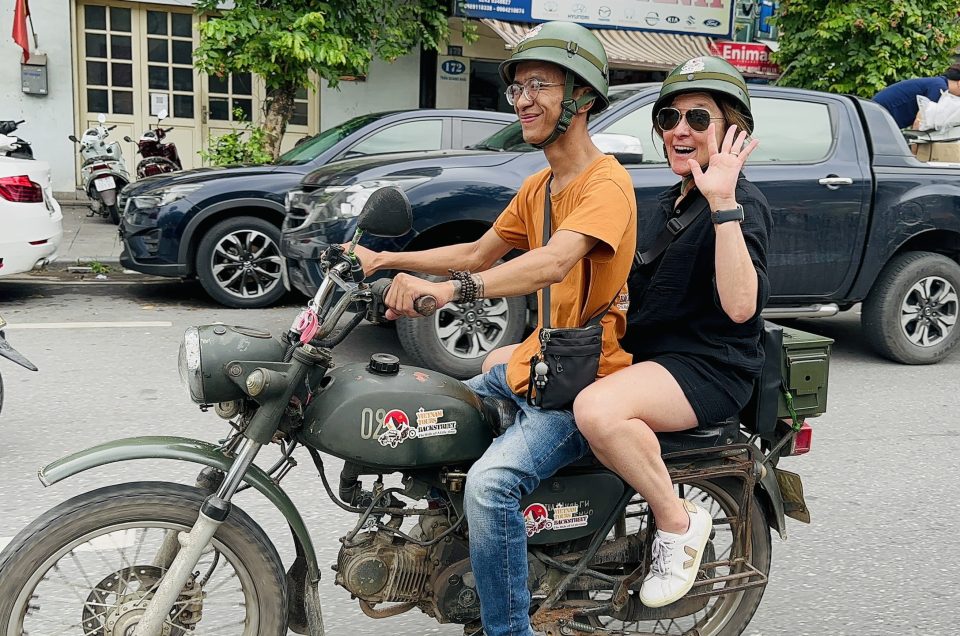In Vietnam, the motorbike is the most widely used form of transportation. At least 100 motorbikes will pass you the instant you take your first foot onto Saigon’s streets. Its density will undoubtedly overwhelm you. People in Vietnam still choose motorbikes as their top choice, whether they are wealthy or poor. You can quickly observe how convenient it is to own a motorcycle in Vietnam from this location.
Even the smallest lane in the city can be navigated. Of course, doing so would require some of your driving expertise. When planning to utilize a motorbike in Vietnam, choosing the appropriate bike for the journey is very crucial. The information you need to know about motorbikes in Vietnam is therefore covered in the article you’re reading right now.
The issue of purchasing a motorcycle comes whether you want to travel to Vietnam for a few weeks as a tourist or as an expat who wants to work, invest, or conduct business there.
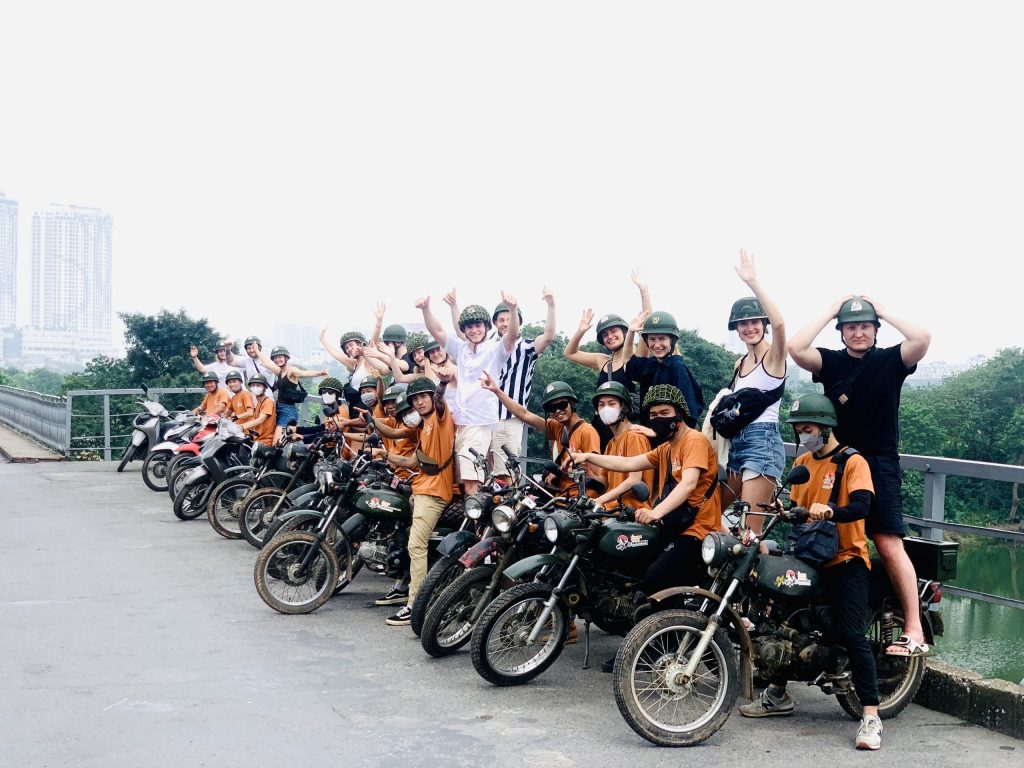
The motorbike regulations in Vietnam
You will require a motorbike with at least 100cc if you enjoy riding a bike for transportation. You must have a valid driving license in Vietnam in order to be allowed to handle this mode of transportation in the nation. When riding a motorcycle in Vietnam, you cannot use the license that you have from your native country.
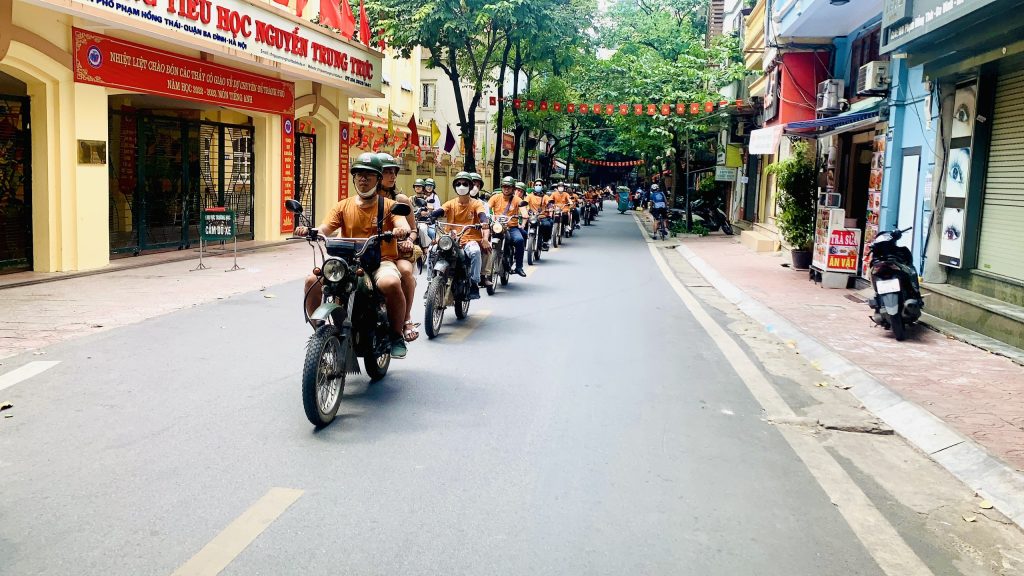
Foreigners must possess a Vietnamese driver’s license in accordance with Vietnamese law in order to ride a motorcycle. You may have heard that you can get away with not having a license and yet bribe your way out of being stopped. The license will be useful, though, if you seriously hurt yourself or someone else. If it is determined that you do not possess the proper documentation to drive in Vietnam, the law will hold you fully responsible. The legitimacy of your IDP is another issue to which you must give complete attention. Your travel insurance will not function as well if your IDP is invalid. You can’t ride a motorcycle in Vietnam if your IDP isn’t current.
That most frequently asked question: Should I rent or buy a motorbike?
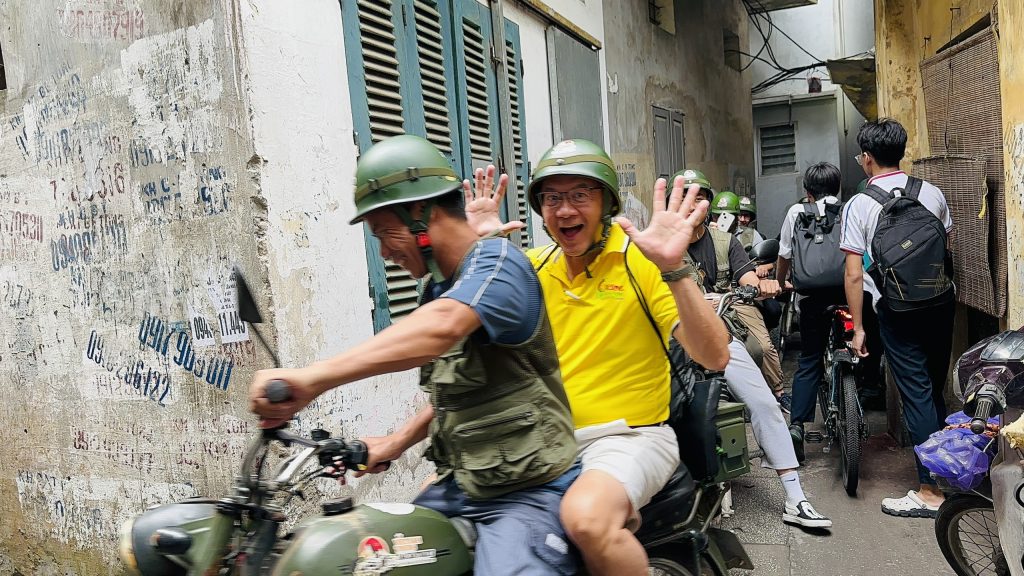
The answer depends on the purpose of your trip to Vietnam.
Renting is undoubtedly the best choice if you just want to stay for a short time. Another situation is when you are unsure of how long you will stay. In such situation, hiring a bike might be a better option. Anytime you wish, you can easily return or increase the rent. You can prevent fraud by renting from respected bike shops like Honda, Yamaha, etc.
Another common recommendation is to rent a motorcycle from a nearby bike store. However, there is always a chance of it happening. The leasing agreement has several problems because these neighborhood shops often simplify the documentation process to draw in more clients, which puts you in a difficult situation. The worst aspect is that some of the shops sell you low-quality Chinese knockoffs at low prices. As a result, what you actually get is a bike that needs to be repaired frequently and costs a lot of money. I usually advise all of my friends to use a reputable firm while renting a bike in Vietnam so that they may fully take advantage of their trip. You might need some more time to complete the papers.
Purchasing a bike is an option if you’re here for employment and intend to stay for at least a year. Without having to worry too much about updating your documents, you can move about effortlessly. In most cases, if you want to make the most of your vacation budget, buying the bikes from other travellers is the best option. Depending on the state of the car, the price is often between $200 and $300. Despite the significant risk involved, you typically get what you paid for. You can ride the bike with a companion who has some motorcycle experience.
Others advise you to bring your bike with you into Vietnam if you have one. Vietnam, however, only permits Vietnamese motorbikes to enter the nation. When it comes to non-Vietnamese motorcycles, the admission process will be very challenging. If you’re willing to do something illegal during the trip, which I wouldn’t advise you to do, it entails paying bribes. Sometimes it involves more than just paying off the security personnel. The mood of those guards will also determine whether or not they are having a good day.
The types of motorbikes in Vietnam
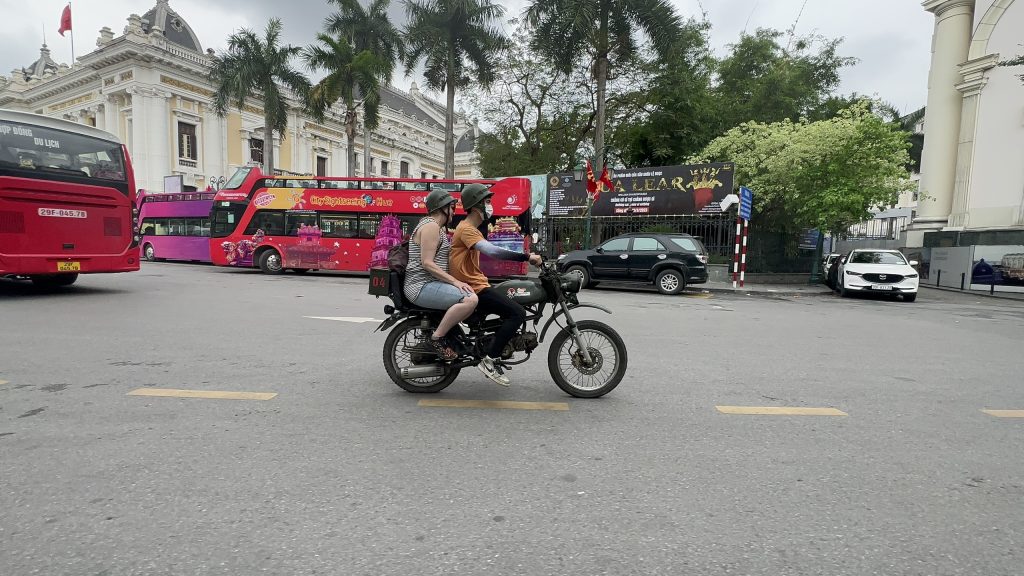
The most popular choices are 125cc and 110cc engines. You may probably travel a long distance to different cities where you live on these bikes. Owning a bike with more potent engines would be the ideal choice, though, if you want to travel to other regions of the nation. But keep in mind that choosing the correct vehicle for the experience is important. Having a strong motorbike is not always a smart choice, especially in locations that are frequently congested, as Vietnam only permits speed restrictions under 40 km/h for cities and 60 km/h for highways.
Due of their excellent reputations in Vietnam, people frequently choose Yamaha and Honda as their top priorities on the list. There are numerous Yamaha and Honda stores spread out across the nation. This is a very practical aspect of Vietnam. You are no longer concerned about finding a shop to service your bike. These stores’ staff members are also fluent in English.
What should you look out for when riding in Vietnam?
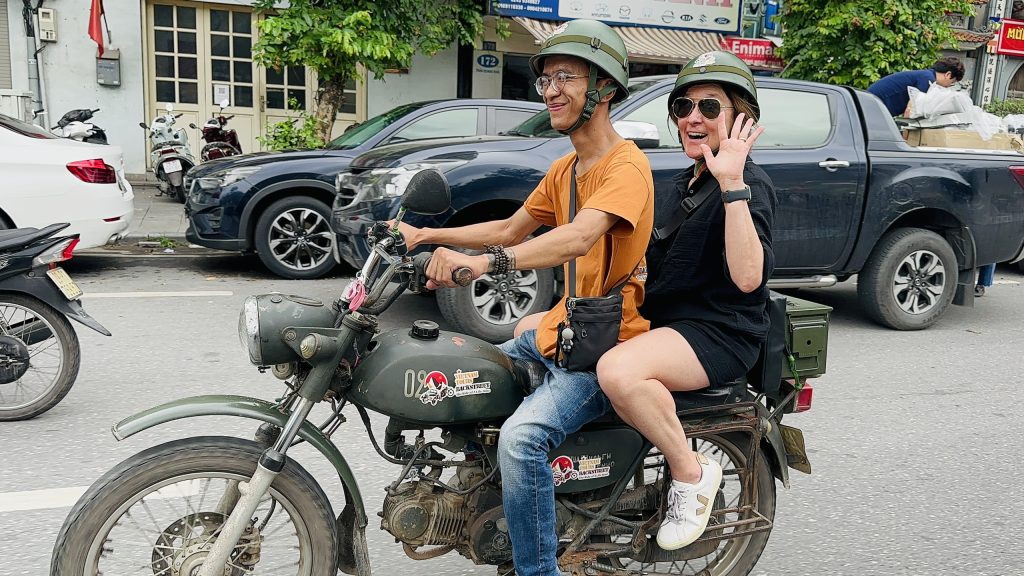
Vietnam has an enormous population. Most days of the week, if you choose to reside in a large city like Saigon, Hanoi, or Danang, you will experience traffic jams. The majority of international visitors to Vietnam will need some time to adjust to this. Although it was unpleasant, I wouldn’t say it was a bad experience. Nevertheless, after spending a month in Saigon, I discovered that this characteristic of the city actually makes it rather exciting to appreciate.
Every time I return from work in such a protracted period of severe traffic, I get to spend some time admiring the city. The experience is significantly improved by Saigon’s skyscrapers, substantial international company buildings, and the inhabitants going about their everyday lives in front of their homes.
Road conditions in town and country
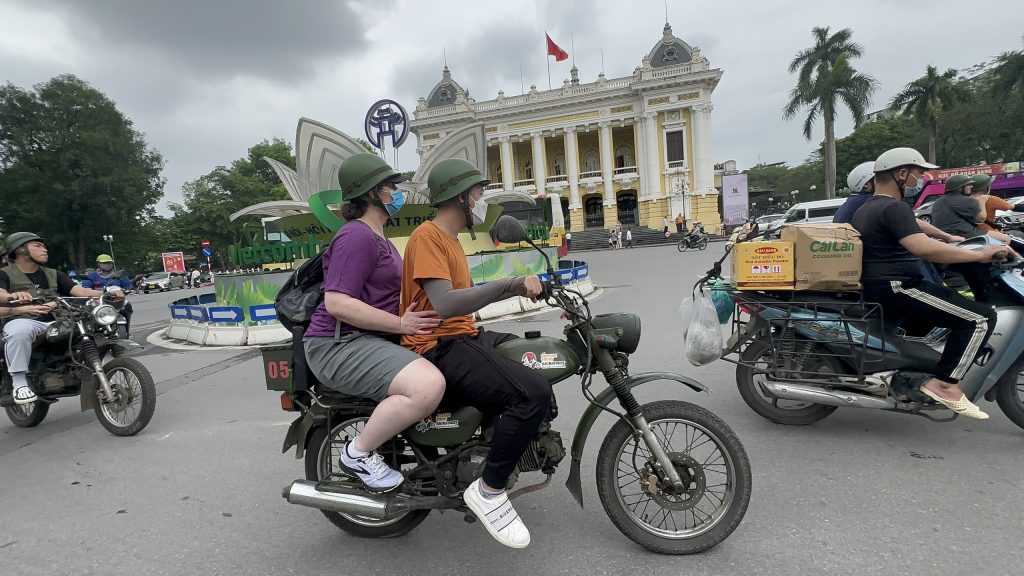
Other foreigners frequently discuss the country’s roads as well. Major areas like District 1, District 2, and District 10 in Saigon have renovated the majority of their roads for increased safety. You might see a few tiny holes in other compact locations like Go Vap District and District 5 that could trigger “earthquakes” when you’re driving. To guarantee your safety and the safety of other road users, it is advised to drive less than 30 km/h in urban areas.
Drive cautiously and keep an eye out for any fowl holes you may encounter. These chicken holes are sometimes referred to as “the cuisine of the city” in jokes by certain Vietnamese people. These kinds of challenges will always be present when you travel to work. Although it’s still not a significant concern, you should be cautious and gradually improve your driving skills in Vietnam.
Other regions of the nation may also have topography that seems a little bit “weird” and hazardous. These are typically hilly regions, mostly in Vietnam’s north, that are well-known to most travelers. The slopes are occasionally so small that only two people can pass through them at once and are nearly straight. When they go on these types of roads, even Vietnamese struggle. Ask for assistance or just walk out of there unless you’re feeling particularly daring and have experience driving over strange terrain.
Speed and road accidents
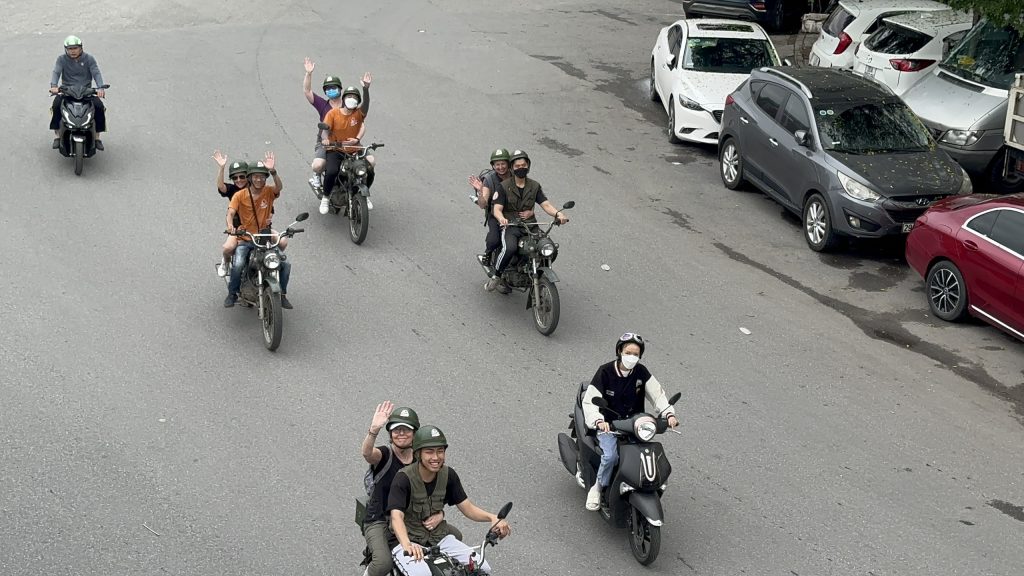
Additionally well-known is the street food in Vietnam. Because of this, there are several food vendors on the streets everywhere you walk. Driving in Vietnam might be a little challenging for people who are not used to it because you have to watch for any stalls up ahead to avoid striking them. You will be alright once you get the hang of it, despite the fact that it may sound dangerous.
The majority of Vietnamese drivers are very courteous. When necessary, they rarely manipulate how the horns are used. Before using the horn, I’ve observed some Vietnamese vocally interacting with other individuals. Additionally, reports of “street racers” have been made. It shouldn’t, however, cause you too much anxiety. Viet Nam’s legal system is strict in its punishment of those who try to injure others in traffic. As a result, there have been dramatically fewer accidents in Vietnam during the last five years. People can now travel without having to worry too much about their safety thanks to this.
Driving in Vietnam is also challenging due to the weather. The majority of Vietnamese people always carry a plastic poncho with them to protect them from the rain. Some foreigners find it novel to ride a motorcycle while donning a jacket. At first, it could make you feel uneasy. However, nothing is insurmountable, right? After two to three months, the majority of my friends had adapted to donning raincoats when driving.
None of them complains any longer, even if it’s not a pleasant experience, and they start to feel like native Vietnamese themselves. The weather also affects your ability to see while driving. Such would be challenging to learn in a matter of days. Waiting till the rain stops so you can safely drive home is the safest option. It’s not a good idea to drive straight back home through a storm, especially while one is brewing, even if you have a raincoat. The majority of Vietnamese people will choose the closest location, which is typically a front house with a roof over it or a shopping mall.
Safety and precautionary measures

Finally, although they are not frequently seen, road thieves occasionally emerge at night. Many expats advise taking a cab if you are planning a late-night outing. There are several possibilities for taxi service in Vietnam, which is also highly popular. Additionally, until recently, Grab Car, a new taxi service, was made available to Vietnamese citizens. Utilizing Grab Car will allow you to look for special deals that will allow you to save some money. In addition, the price is very reasonable when compared to traditional taxi services. You can test out various services to choose one you like most.
I definitely encourage you to use taxi services at late midnight to ensure your safety entirely. Even though Vietnam is a safe country with a very low rate of crime, unfortunate events can still happen unexpectedly not just in Vietnam but in other countries, too.

